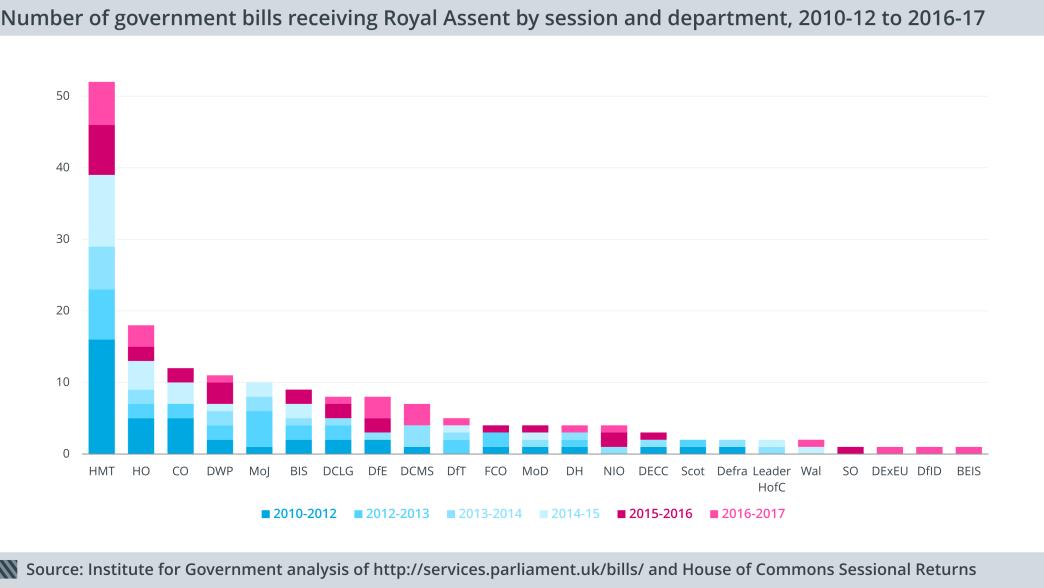
The wash up of legislation at the end of Parliament has meant a worrying lack of scrutiny, says Gemma Byrne
The majority of bills were passed on the last sitting day of the session.
In most parliamentary sessions, a large proportion of government bills are passed right at the end of the session. This is particularly the case when a session is the last one of that Parliament, as a government rushes to get its business through.
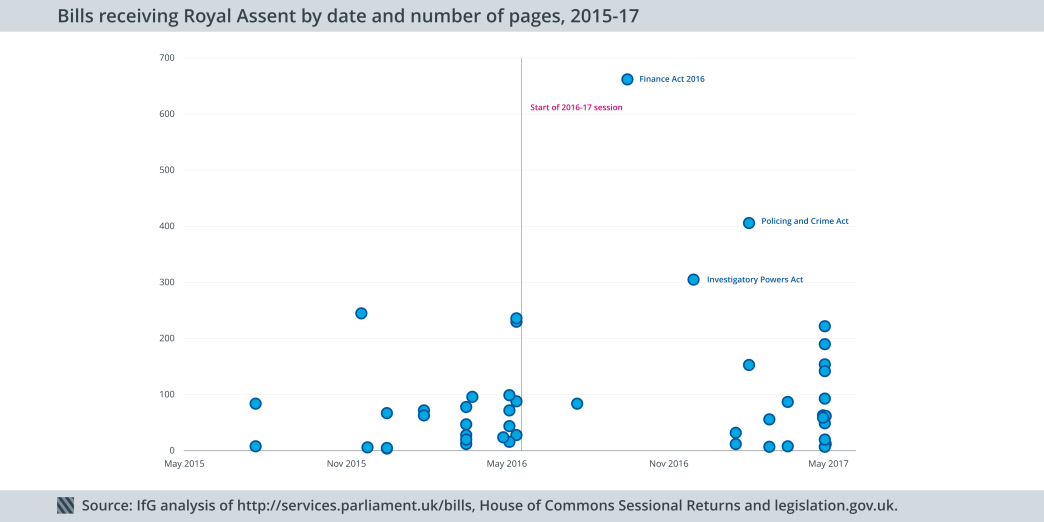
Thirteen of the 24 successful government bills from this parliamentary session passed on the last sitting day of Parliament. More bills were passed on that day than on the last day of any other session since 2010. Amongst these 13 bills were the Higher Education and Research Bill and the Finance (No 2) Bill. In total, 1,097 pages of legislation were passed, which is 38% of the total number of pages passed in the 2016-17 session.
With so many highly significant bills being rushed through on the last day of Parliament, they will not have been subject to the serious scrutiny that is required. And the more controversial parts of some of these bills will have been dropped in an attempt to get them through by the end of the session. For example, the Finance (No 2) Bill had 776 pages when it was introduced, but passed with 154. The Government dropped over half of the 135 clauses in the bill, including the clause on Making Tax Digital.
In the past, these parts could be reintroduced in the next Parliament where they could receive the properlevel of scrutiny. However, this may be unlikely in the next Parliament, as the legislative agenda becomes increasingly dominated by Brexit.
In total, 24 government bills received Royal Assent during the 2016-17 session.
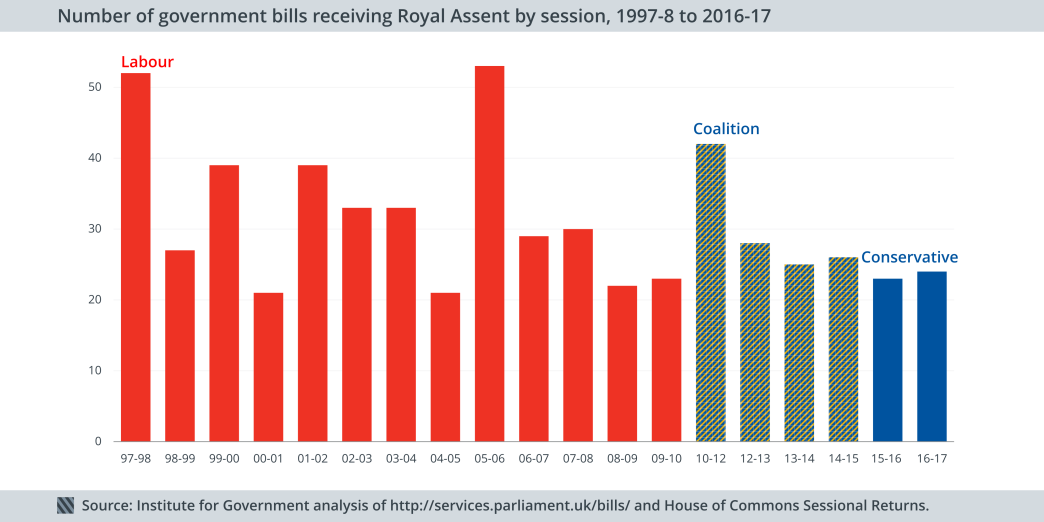
This is just one more than in 2015-16, but still fewer than any session under the Coalition Government, and significantly lower than the recent high of 53 for the Labour Government in 2005-6.
As we have previously reported, up to 15 new bills required to deliver Brexit, meaning that the next Parliament is likely to face a huge legislative burden. If the trend set under the Conservative government of passing fewer than 25 pieces of legislation in a session continues, this may leave little room for non-Brexit related legislation.
However, parliamentary sessions vary in length. The 2016-17 session was slightly shorter than others after the Prime Minister called the snap election.
The Government produced less legislation per sitting day than its predecessors.
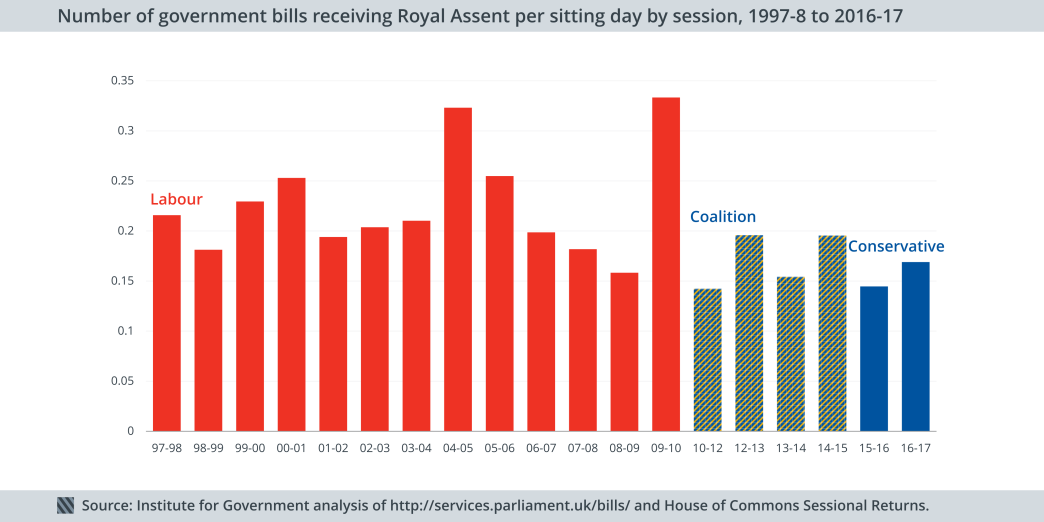
Looking at the number of bills passed per sitting day allows us to make a fair comparison of the activity of parliamentary sessions. The 2016-17 session was slightly busier than the previous session, with a bill passing, on average, every six days, compared to one every seven days in the previous session. One bill passed every six days under the Coalition Government and one every 4.6 days under Labour between 1997 and 2010.
Passing less primary legislation is not necessarily a bad thing if government is legislating in a more effective way. The legislative burden of Brexit will force the next government to prioritise further.
Bills were longer in 2016-17 than in 2015-16.
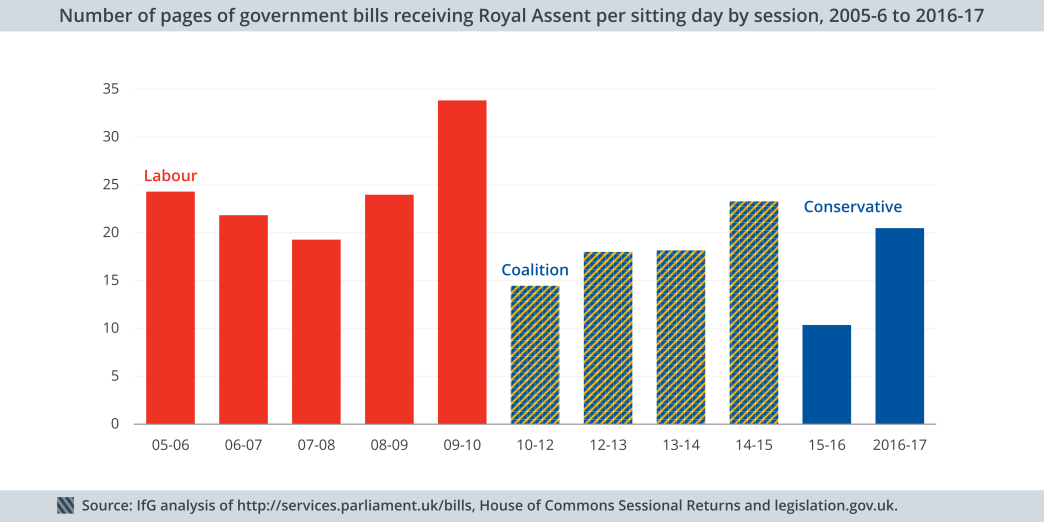
The number of pages of legislation passed per sitting day was considerably higher in this session: an average of 20.5 pages in 2016-17, compared to 10.4 in 2015-16, which is higher than all but one of the sessions under the Coalition. Longer bills require greater scrutiny, but with significantly more pages passing per sitting day in 2016-17 than in 2015-16, Parliament will not have had as much time for scrutiny.
The Treasury passed the greatest number of bills in the 2016-17 session – Defra, likely to face a heavy Brexit workload, passed none.
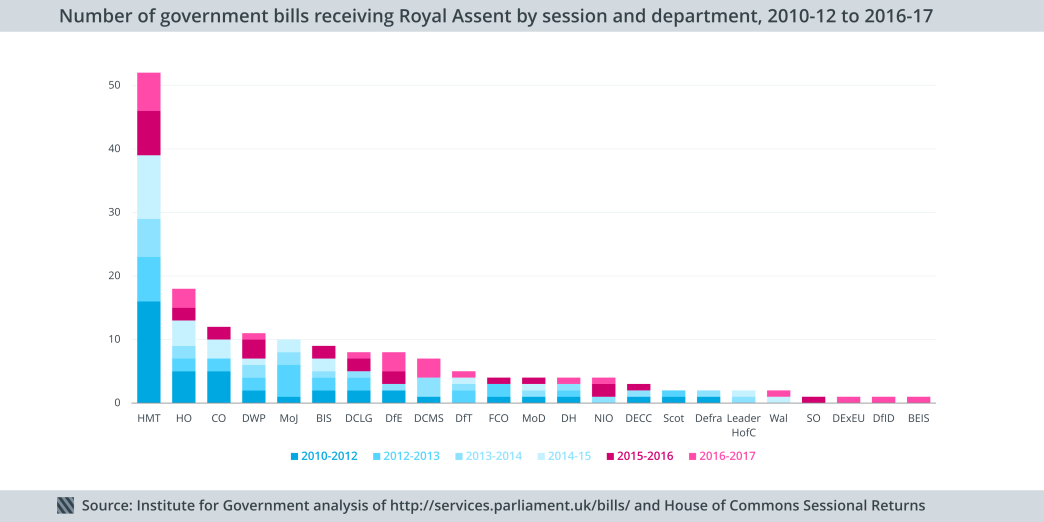
In the 2016-17 session, the Treasury passed six bills which, as always, makes it the department to pass the most legislation. DCMS, HO and DfE all passed three bills this session, and DExEU passed one: the notification of withdrawal from the EU.
The Home Office – also responsible for almost as many pages of legislation as the Treasury – contrasts sharply with another department likely to be affected by Brexit: Defra, which was responsible for no primary legislation. Brexit will significantly increase the legislative load that some departments face in the next Parliament. Hence, departments such as Defra, that are not used to passing primary legislation, may need to get used to it quickly.